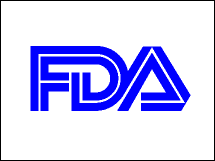|
Barr rallies on morning-after pill news Company to meet with feds to discuss OTC use of Plan B, but impact on sales could be limited. NEW YORK (CNNMoney.com) -- Barr Laboratories stock rallied Monday after the drugmaker said it was meeting with the FDA about possibly getting its controversial morning-after birth control pill approved for use by women over age 18 in the United States. Barr (up $1.02 to $49.85, Charts) shares jumped about 2 percent in late-morning New York Stock Exchange trading.
The company said its subsidiary, Duramed, received a letter from the Food and Drug Administration to meet with the agency as soon as possible to discuss its application seeking over-the-counter status for Plan B, the morning-after pill. The FDA confirmed that it sent a letter to Duramed "to proceed working with the sponsor in order to move Plan B from prescription only to over-the-counter status for women ages 18 and older." However, analysts say that Plan B isn't much of a contributor to Barr's total sales, bringing in a relatively slim $35 million in annual revenue, and even if the FDA approves the drug for OTC use it won't be much of a windfall for the company. "The impact is more on the political sense," said Aaron Gal, analyst for Sanford C. Bernstein. "From a financial perspective, it's a small drug." Andrew Forman, analyst for WR Hambrecht, said Plan B could eventually reach $200 million in annual sales. But Forman said that Barr's ongoing efforts to acquire the Croatian drugmaker Pliva are much more crucial to its financial future because it would allow Barr to produce generic bioengineered drugs in Eastern Europe. "Plan B is plan B, but Pliva is plan A," said Forman. Barr, by proving that it could manufacture bioengineered generics in Croatia, could then set itself up to produce the same drugs in Western Europe, Canada and the United States, where they are currently unavailable. The FDA recently announced that it wants to establish a regulatory structure for bioengineered generics. These drugs cannot be produced in or imported into the United States until such a regulatory structure exists. Plan B's controversial path Plan B, an emergency oral contraceptive that can prevent pregnancy if taken within 72 hours after intercourse, has been sold as a prescription drug since FDA approval in 1999. Women's Capital Group, the organization that originally financed Plan B's development, filed an application to the FDA in 2003 to get the contraceptive approved for OTC use. Barr, a Woodcliff Lake, N.J.-based drugmaker, bought Plan B later that year. In the same year, the FDA's advisory panel voted 24 to 3 in favor of OTC status, but the agency did not follow the advice of its panel, as it usually does, and later denied OTC status. The agency said it did not approve Plan B for OTC use because there was not enough data for girls under the age of 16. But supporters of Plan B sued the FDA in 2005, charging that it didn't approve the drug for OTC use on the basis of moral issues relating to sexuality in teenage girls rather than making its decision based on science. The agency's failure to move forward on the drug prompted Susan Wood, assistant commissioner for women's health at the FDA and director of the Office of Women's Health, to quit her job last year. The FDA's decision to move forward on Plan B talks could result in the permanent appointment Tuesday of Andrew von Eschenbach, acting commissioner of the FDA. Two senators have said they will block the nomination if the FDA continues to drag its feet on Plan B. "In order for Eschenbach to get approval, this needs to get out of the way," said Forman. The analysts interview for this story do not own Barr shares, and their companies do not conduct banking with them. |
|

